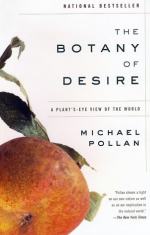
|
| Name: _________________________ | Period: ___________________ |
This test consists of 5 multiple choice questions, 5 short answer questions, and 10 short essay questions.
Multiple Choice Questions
1. The book suggests that deep down, many gardeners see themselves as ________ transforming compost, water, and light into beauty.
(a) Scientists.
(b) Herbalists.
(c) Alchemists.
(d) Spiritualists.
2. The scourge of potatoes has always been the _________ potato beetle, which can pick a plant clean of its leaves.
(a) Wyoming.
(b) Idaho.
(c) Colorado.
(d) Ohio.
3. The book states that the effect of making pot illegal was that the counterculture engaged in _______the plant.
(a) Weakening.
(b) Destroying.
(c) Genetically modifying.
(d) Killing.
4. What is a good place to experiment and a place to try out new plants and techniques without having to risk a lot?
(a) School.
(b) Scientific lab.
(c) Flower pot.
(d) Garden.
5. Antheleme Brillat-Savarin noted, "Tell me what you _______ and I will tell you what you are."
(a) Know.
(b) Grow.
(c) Believe.
(d) Eat.
Short Answer Questions
1. When Pollan opened up the package to grow the NewLeaf potatoes, the card stated that he was now ________ to grow the potatoes.
2. Some of the farmers who grow potatoes are happy with Monsanto since this means they can skip a few _________, which saves them money.
3. The book suggests that _______ calls to human desire to alter the textures and contents of our consciousness.
4. Certain drugs, Pollan states, will cause objects around us to change until they appear as the _________ versions of themselves.
5. The books suggests that all of the following are successful defenses plants have adopted except _______.
Short Essay Questions
1. How does one begin to grow potatoes, according to Pollan in the book?
2. Compare and contrast the tastes of plants which are supposed to be eaten with those which are not supposed to be eaten.
3. Describe the experience Pollan had when the police almost found his large marijuana plants in his backyard?
4. How does Heath avoid the purchases of many inputs on his farm so that he can save money?
5. What does Pollan believe the experience of the sublime has to do with the experience of nature?
6. Where was marijuana primarily grown up until the early 1980s when the war on drugs began?
7. What parts of the marijuana plant are supposed to be smoked?
8. What was going on at the time of Pollan's visit to Amsterdam for research for this book?
9. What does genetic engineering promise to do for the crops which are growing with these modifications?
10. What happens to the animal in the wild who decides to eat hallucinogens and thus takes in the toxins of these plants?
|
This section contains 664 words (approx. 3 pages at 300 words per page) |

|




